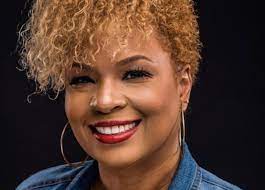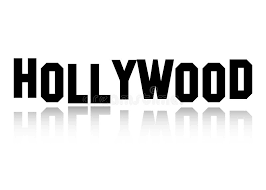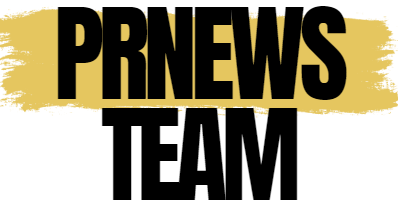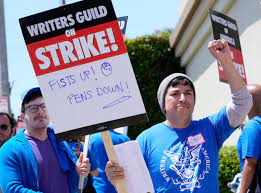In the heart of Hollywood, where storytelling has long been revered as an art form, a battle is raging.
It’s not a battle between actors or directors; instead, it’s a clash of creativity versus technology.
At the center of this skirmish stands artificial intelligence (AI), and screenwriters are drawing the battle lines, fearing the potential erosion of their livelihoods.
Michelle Amor, a prominent Hollywood screenwriter, openly expresses her apprehension about the encroaching influence of AI on her craft. “I don’t want to be replaced with something artificial,” she declares.

Amor, along with her fellow television and film writers, has been on strike since the start of May, their demands clear and unwavering.
One of their central demands is a written commitment from studios and streaming giants to limit the use of AI-powered writing tools, with ChatGPT taking the spotlight.
The Writers Guild of America, their union, is resolute that AI should only be deployed for research purposes and never as a replacement for human creativity.
Amor’s concerns resonate with many in the industry who have witnessed automation’s relentless march.
She highlights the fate of her mother, whose union job as a packer was ultimately replaced by robotics—a change justified by the labor-intensive nature of the job.
However, the world of screenwriting, according to Amor, is an entirely different realm. “We create art,” she asserts passionately. “Who wants a fake Picasso?”
For Amor and her fellow writers, their craft is the heartbeat of the entertainment industry. Without their words, there are no stories, and they argue that this truth is universally acknowledged.
Melissa Rundle, another screenwriter, underscores the surprising rapidity with which ChatGPT became a pivotal issue in the ongoing labor dispute.
She acknowledges AI’s inevitability but seeks safeguards against its unchecked adoption. “At a minimum, we are fighting for regulated use of AI on projects, and a firm understanding that it cannot write – or re-write – any literary material,” she asserts.
Elliott Kalan, a comedian and screenwriter with an impressive resume, echoes these concerns.

He warns of the growing threat of studio executives relying on AI to generate original ideas for movies and TV series.
Kalan predicts that this could result in writers losing both compensation and the opportunity to contribute meaningfully to the entertainment landscape.
However, Kalan also sees the potential for AI to complement human creativity rather than replace it.
He envisions AI as a tool for organizing information and facilitating communication of ideas, rather than as a substitute for the artistic process.
The Alliance of Motion Picture and Television Producers, representing studios and streamers such as Warner Bros.
Discovery, Disney, Netflix, and Apple, recognize the complex challenges raised by AI. Scott Rowe, a spokesperson for the alliance, emphasizes their commitment to creative work but acknowledges that AI poses creative and legal questions that demand careful consideration.
In contrast to fears of AI usurping creativity, Chun Xia, a founding partner of a Silicon Valley-based technology investment firm, envisions a collaborative future.
He believes that AI could lay the foundation for sitcom scripts, with human writers then infusing their expertise, humor, and originality to refine AI-generated material.

This collaborative process, he argues, will lead to enhanced scripts that maintain their unique voice while benefiting from AI-generated insights.
Not all screenwriters share this optimistic view. John Pollono, a writer, director, and actor, finds the idea of AI “scouring” past scripts to inform future ones unsettling and uncreative.
He likens it to using the same playdough repeatedly, warning that writers risk having their voices “robbed.”
Sara Bibel, another screenwriter, dismisses AI’s creative potential outright, branding it a “glorified auto-correct” that merely combines words based on coding and plagiarizes existing content.
As the strike continues and the debate rages on, one thing is clear: the creative landscape of Hollywood is undergoing a profound transformation.
While AI has the potential to enhance and streamline the creative process, it also raises complex questions about originality, creativity, and the role of humans in storytelling.
In the end, the battle between technology and creativity in Hollywood is far from over, and the final script has yet to be written.

